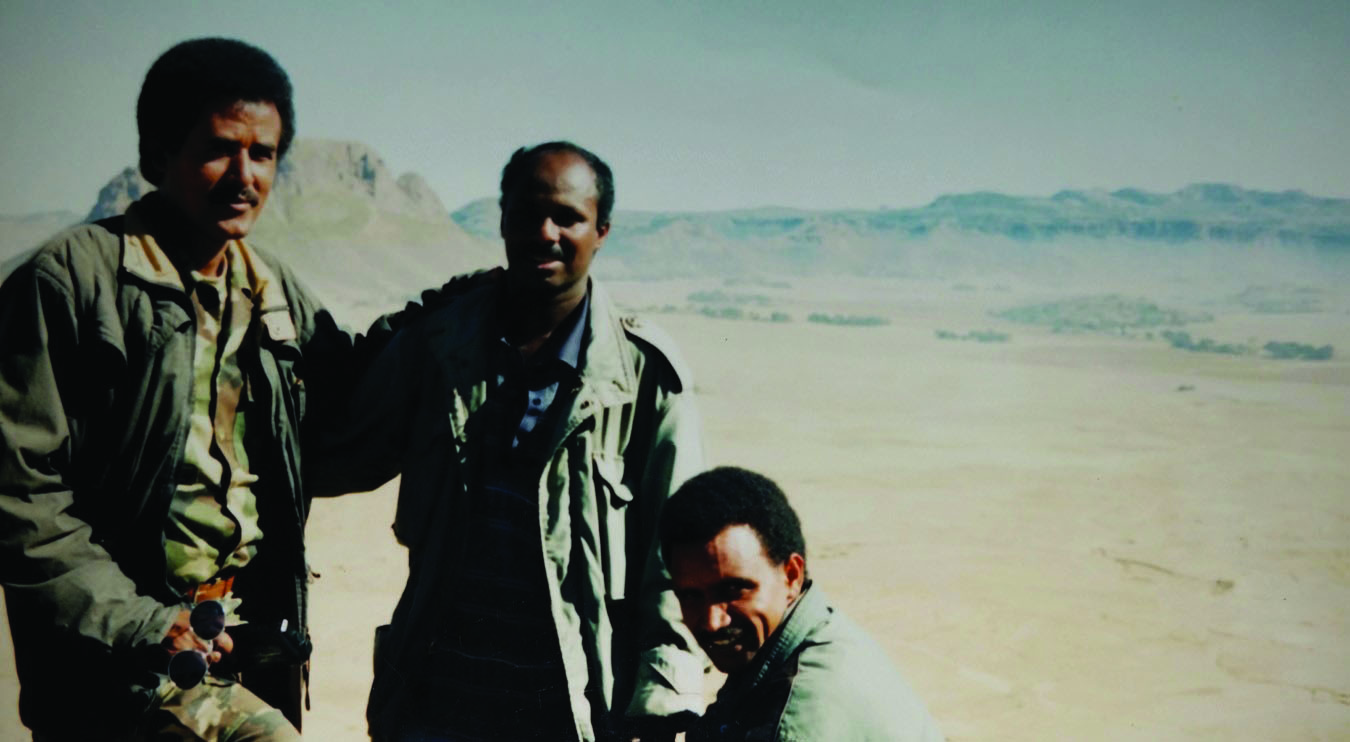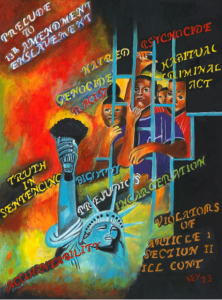From child soldier to human rights activist
September 12, 2017
NEIU Alumnus Berhane Hailemichael uses his past as a child soldier during the Eritrean War to fuel his desire to be a human rights activist.
Hailemichael was sixteen years old when he volunteered as a “Freedom Fighter” for the Eritrean People’s Liberation Front during the war for independence from Ethiopia in 1976.
“Nobody forced me,” he said. “Our living situation was bad. We couldn’t speak our language. Our land, our rights, everything was under Ethiopian colony.”
During the fight for independence, many young people found themselves enlisting in the army to fight for a better life.
While the age for enlisting was eighteen, Hailemichael was able to enlist at sixteen.
“I told them if I go back to my village they would arrest me, they would kill me, so I cannot go anywhere,” Hailemichael said. After joining the fight for Eritrea’s independence, Hailemichael began political and military training for five months to prepare for life in a combat zone.
“Being a Freedom Fighter is totally different from a regular life,” he said. This life included days in the desert without food or water and under harsh weather conditions, Hailemichael recalls.
“The life was abnormal, we used to kill the enemy and mixed the dead body with the river; we had to drink that water to survive,” he said. Despite the hardships he faced, Hailemichael remembers a sense of unity among the “Freedom Fighters.”
“We had some respect because of the sacrifice between us,” he said. Throughout his involvement in combat during the Eritrean War, Hailemichael kept a clear mind regarding what he had signed up for.
“I went to die, not to survive,” he said, “To suffer any kind of problem or tragedy, and to accept it gave me strength.”
While the Eritrean War had a casualty of over 65,000, Hailemichael survived combat.
He became a journalist in 1991 with the Ethiopian government. Due to his extensive army experience, the government assigned him as a photojournalist in war zones during the war with Ethiopia.
He was injured in the eye and shoulder, adding onto the injuries he had received during his enlistment.
After the border conflict between Ethiopia and Eritrea settled down in 2000, Hailemichael was sent to cover The Eritrean Festival in the United States.
Hailemichael continued to write articles criticizing the Eritrean government, which landed his editor and Minister of Information in jail.
“I have to do the journalist ethic, but the problem was mass media was under government control,” Hailemichael said. “You cannot criticize the government, you have to write what they like.”
After this incident, Hailemichael decided to stay in the United States in hopes of a better life and to live without fear of retribution from his country’s government.
“It was not my choice to stay,” Hailemichael said.
“Imagine after fourteen years of being a Freedom Fighter, I am supposed to stay in my country to spend the rest of my life with my family. I was frustrated. If I didn’t go back home, it means I die without seeing my children. But if I go back home, they will arrest me. I took a risk.”
With hopes for a new life in the United States in 2001, Hailemichael also experienced struggles when first trying to settle into the country.
“The hardest thing is to get a job and housing,” he said.
Hailemichael performed odd jobs from washing cars to shoveling snow, a concept that was foreign to him as there is no snow in Eritrea, in order to make ends meet.
After struggling with finding jobs and dealing with the culture shock of a new country, Hailemichael enrolled in ESL classes. He eventually earned an Associate’s Degree in 2010.
“I have sacrificed,” he said. “ But if you have a desire, if you have a goal, the impossible is possible.”
Regardless of his past and current struggles, Hailemichael continued to pursue an education, graduating with a Bachelor’s Degree in Justice Science from NEIU in 2014.
Hailemichael hopes to become a leader in Human Advocacy utilizing his degree. He wants to use his experiences as a child soldier, an immigrant, and as a human being to speak for those you can’t speak for themselves.
“I have to fight for equality,” he said.
Part of this advocacy for human rights includes his work in the development of an Eritrean Community Center, which he says will greatly benefit Eritrean immigrants and help for a smoother transition into the United States.
“I don’t care about my salary, even if I make less than I do now. If I help someone, that’s my salary,” he says.







